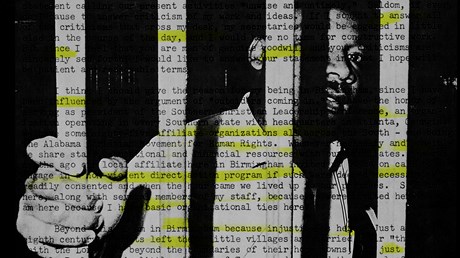On the 60th anniversary of Martin Luther King Jr.’s Letter from a Birmingham Jail, Christians are reminded of how much further we must go.

On Good Friday in 1963, eight white Alabama clergymen published an open letter in Birmingham calling for the Black community to cease their civil rights demonstrations.
These church leaders—from Methodist, Episcopal, Presbyterian, Baptist, Catholic, and Jewish traditions—advised that “when rights are consistently denied, a cause should be pressed in the courts and in negotiations among local leaders, and not in the streets.”
In response, Rev. Dr. Martin Luther King Jr. penned a timely message—beginning on the margins of newspapers and then on smuggled-in scraps of paper—not knowing the profound impact it would have for generations to come. His “Letter from Birmingham Jail” is said to be the most important document of the civil rights era, compared by some to Jefferson’s Declaration of Independence for its impactful call for social change.
Although the “separate but equal” segregation law had been struck down a decade earlier through the landmark case of Brown v. Board of Education, some cities and states were resistant.
In Birmingham, one of the most segregated cities in America, notorious local safety commissioner Eugene “Bull” Connor and other white segregationists got a state judge to pass a temporary injunction banning all pro-integration activity. And after leading a peaceful march, King and other protesters were arrested.
From his cell, King made a compelling argument for the importance of peaceful, public protest in the pursuit of justice. He explained the four steps of nonviolent activism: collecting facts to determine whether injustice exists, negotiating with local officials to work toward just resolution, practicing restraint when actions ...
from Christianity Today Magazine
Umn ministry


.gif)

.gif)
.gif)
